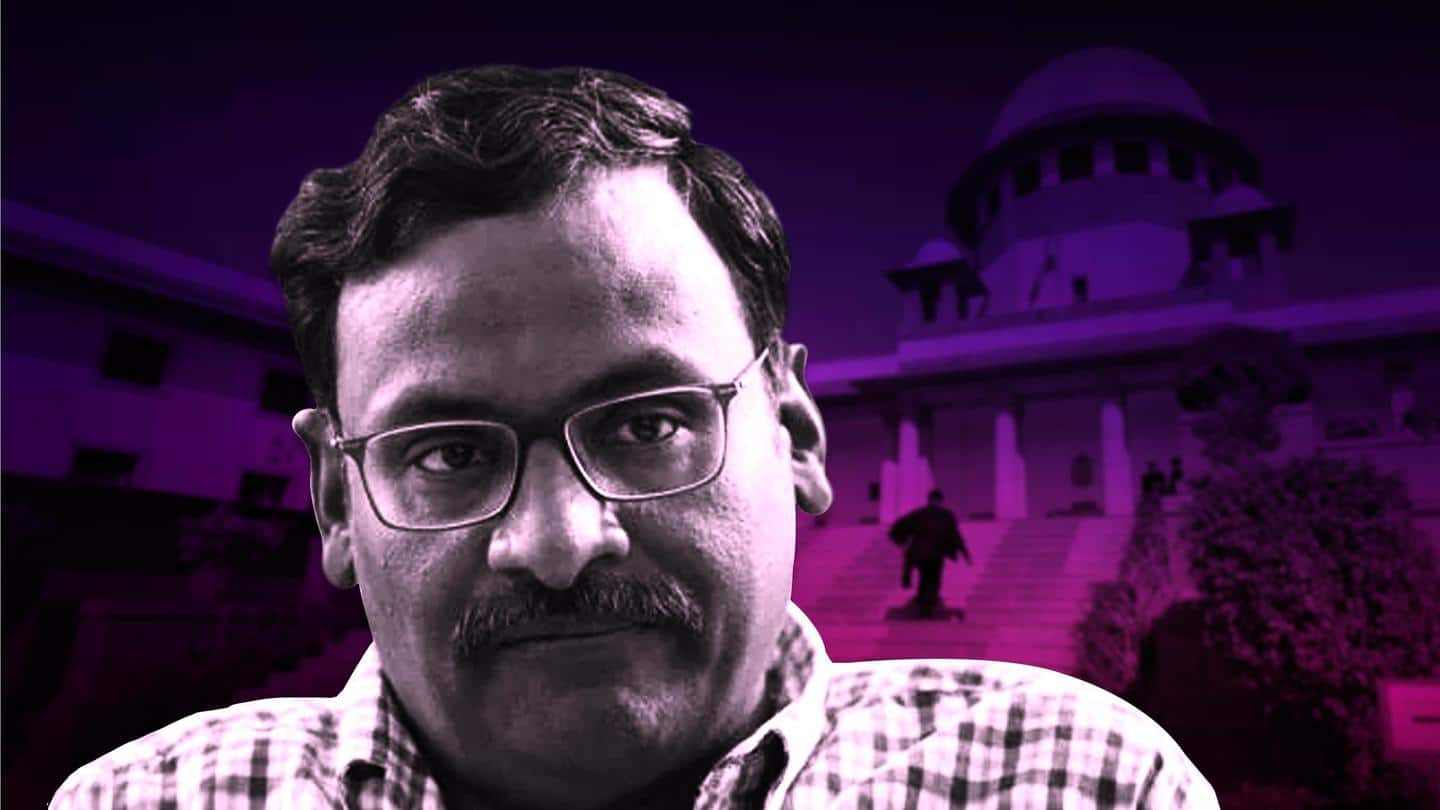
Maoist links case: SC suspends acquittal of ex-DU professor Saibaba
What's the story
The Supreme Court (SC) on Saturday suspended the Bombay High Court ruling acquitting former Delhi University professor GN Saibaba in a case involving his suspected Maoist affiliations, Live Law reported.
While staying the release of five people, including Saibaba, SC criticized the HC for using a shortcut to reach a decision.
SC will hear the case next on December 8.
Context
Why does this story matter?
A sessions court in Gadchiroli, Maharashtra convicted Saibaba for alleged Maoist links along with a journalist and a student of Jawaharlal Nehru University (JNU) in March 2017.
In August 2013, two close associates of Saibaba were held and were found in possession of incriminating CPI (Maoist) documents.
Later, his two other associates were arrested and his hard drives were seized as evidence.
Order
What did Supreme Court say?
According to the Supreme Court, the trial court condemned Saibaba after a thorough examination of the case's merits.
It stated that the charges charged against him are grave and detrimental to the society, sovereignty, and integrity of India.
As a result, the court denied Saibaba's request to maintain his home detention despite the fact that he is 90% crippled and wheelchair-bound.
Proceeding
Evidence against Saibaba 'extremely disturbing': Solicitor General
Earlier, Solicitor General Tushar Mehta stated that the Supreme Court had the authority to suspend the High Court's verdict under Section 389 of the Code of Criminal Procedure.
"Mere irregularity in the grant of sanction does not warrant discharge," Mehta argued.
He described the case facts against Saibaba and others as "extremely disturbing," including evidence that they were scheming to destabilize parliamentary democracy.
Arguments
How did Saibaba's counsel argue?
Meanwhile, Saibaba's counsel, senior advocate R Basant, claimed his client was arrested in May 2014 and charged in February 2015.
He alleged that the authorization to prosecute him was only obtained in April 2015.
Basant argued that Saibaba was elderly and that his wheelchair condition needed frequent and professional medical attention, which the jail personnel at Nagpur Central Jail could not give.
Background
Was convicted for 'waging war' against India
According to reports, he had challenged the 2017 trial court order convicting him along with Mahesh Tirkey, Hem Keshwdatta Mishra, Prashant Rahi, Vijay Nan Tirkey, and Pandu Pora Narote — who died in August this year.
He was jailed under the Unlawful Activities (Prevention) Act (UAPA) on charges of "waging war" against India.
He was accused of helping Maoist groups with logistics and recruitment.